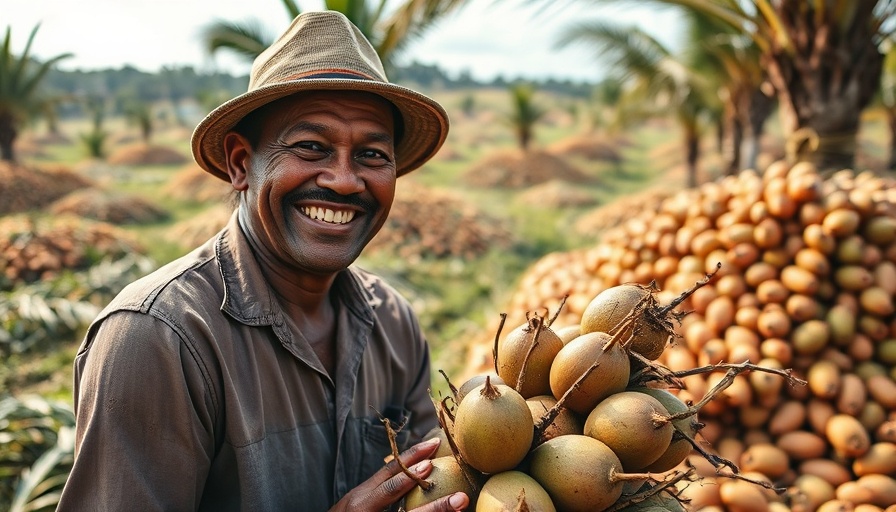
Indonesian Court Recognition: A Step toward Forest Conservation
The Indonesian Supreme Court has made a significant ruling concerning the Tanah Merah oil palm project, a decision celebrated by environmentalists while highlighting ongoing challenges for Indigenous communities. On March 18, 2025, the court upheld the government's decision to halt the expansion of the Tanah Merah oil palm plantation in Papua, securing a vast area of rainforest, approximately the size of Jakarta, from potential clearing.
This legal decision sets a crucial precedent for forest conservation efforts in Indonesia. The ruling indicates that the Ministry of Forestry can enforce regulations to halt deforestation by companies that violate their operational permits. Sekar Banjaran Aji from Greenpeace Indonesia highlighted the ruling as a strong signal that the government has the authority and obligation to protect the remaining forests, noting that it “shouldn’t be afraid anymore” to enforce these measures. This is vital as the world grapples with climate change and the need for sustainable practices.
Why Indigenous Rights Remain at Risk
Despite this crucial win for environmental conservation, the court’s decision is bittersweet for the Awyu tribe, whose ancestral rights were not recognized. The court did not grant the Awyu community formal ownership or rights to their ancestral lands, leaving them vulnerable to potential displacement by corporations seeking to exploit the land. This oversight is particularly concerning considering the rich biodiversity these forests harbor—essential not only for Indigenous cultures but for environmental health as well.
The struggle of the Awyu people serves as a reminder of the intrinsic link between local communities and their environment. Hendrikus Woro, an Awyu member, expressed that “without our ancestral forest, our people cannot survive.” Their plea for recognition underscores the importance of including Indigenous voices in environmental governance and decisions, as their stewardship can lead to sustainable community practices.
The Tangle of Legal Battles and Environmental Protection
The ruling has so far only addressed the corporate licensing aspect and not the broader implications of Indigenous rights to land that holds cultural importance. Environmental advocates have pointed out that overlooking Indigenous rights could result in new companies attempting to reclaim land or replace palm oil interests with similar threats to biodiversity.
Another aspect of this legal saga is that the Tanah Merah plantation project has drawn investments from various firms, often operating under complex corporate structures that obscure accountability. These legal disputes also highlight the necessity for transparent governance and regulations that prioritize both conservation efforts and Indigenous rights. Previous investigations have uncovered significant irregularities in the licensing process, with some permits issued under dubious circumstances. That raises further questions about the integrity of decision-making in the face of environmental crises.
Path Forward: Seeking Formal Recognition
As the Awyu tribe contemplates their next steps, they plan to seek formal recognition of their land rights using the Supreme Court's recent ruling as a platform. The lack of legal acknowledgment limits their ability to manage their ancestral land sustainably—a critical component in mitigating the broader environmental crises we face today.
Indigenous communities worldwide are increasingly recognized as stewards of biodiversity. Acknowledge their rights not only helps preserve cultural identities but also contributes to global efforts in combating climate change through sustainable practices and land management. As this legal journey unfolds, it sets a global precedent on the role of Indigenous rights in environmental policy.
In conclusion, while the recent ruling marks a win for forest conservation, the fight for recognition and protection of Indigenous land rights continues. Activists and community leaders urge that true progress lies in the integration of sustainable development goals with social justice for Indigenous peoples. The path ahead requires collaboration, recognition, and shared responsibility between governments, corporations, and local communities to ensure a sustainable future.
As readers concerned about sustainable living, supporting the movement for Indigenous rights and environmental conservation can start with awareness campaigns, petitions, and advocating for ethical practices in palm oil production. Every action counts, not just for the Awyu tribe but for global biodiversity and sustainability efforts.
 Add Row
Add Row  Add
Add 



Write A Comment